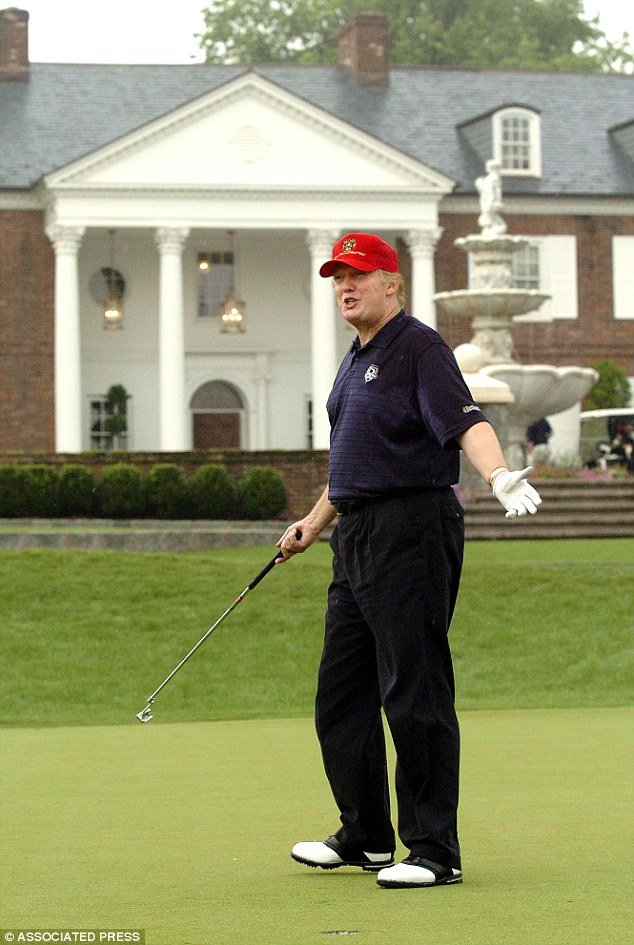Trump again claims Iran not complying with ‘spirit’ of nuclear deal

TEHRAN – The pent-up U.S. President Donald Trump repeated his claim on Thursday that Iran is not "living up to the spirit" of the international nuclear accord which he called a "horrible agreement."
"I don't think they're living up to the spirit of the agreement," Trump told reporters at his golf retreat in New Jersey, where he is on a 17-day working vacation. "I personally don't think they're in compliance. But we have time, and we're going to see."
"I think you'll see some very strong things taking place if they don't get themselves in compliance," he said.
Formally known as the Joint Comprehensive Plan of Action (JCPOA), the deal was signed in July 2015 between Iran, the United States, Russia, China and three European powers. It gave Iran relief from all nuclear-related sanctions in exchange for rolling back its nuclear activities.
The deal went into effect in January 2016.
Since his campaign trail and eight months into his tenure, Trump has made a cascade of hostile, disquieting remarks about the nuclear deal, branding it "one of the worst deals ever made by any country in history".
Yet, Trump has not abandoned the JCPOA. In July, which marked the second anniversary of the UN-endorsed accord, Trump certified reluctantly for the second time that Tehran was in compliance. By U.S. law, the administration is required to certify Iran’s compliance every 90 days. Otherwise, Congress is given a 60-day period during which it can re-impose sanctions or pull out of the deal altogether.
Speculations are around that the erratic head of the Oval Office may refuse to certify Iran’s compliance in October.
Discussing what he would declare after the next 180-day cycle, Trump told The Wall Street Journal two weeks ago: “I think they’ll be noncompliant.”
Also, days after the July certification, Trump was quoted as having commissioned a group of trustworthy White House staffers to make the potential case for withholding certification of Iran in October.
Already in April, the administration said it was launching an inter-agency review of whether the removal of sanctions against Iran was in Washington’s national security interests.
Trump’s decertification bid is highly controversial, and is not likely to persuade other signatories to the deal to find Tehran in default.
Under the deal, the International Atomic Energy Agency (IAEA), the UN nuclear watchdog, is responsible for monitoring and verifying Iran's compliance. Since the implementation of the deal the international body has confirmed Iran’s compliance for six times.
However, Tehran has accused the U.S. of violating the spirit and letter of the deal, saying Washington is making efforts to prevent the country from reaping benefits from the sanctions ease.
In an interview with CNN’s Fareed Zakaria in July, Iranian Foreign Minister Mohammad Javad Zarif said that “the United States has failed to implement its part of the bargain,” citing the fact that Trump had “used his presence in Hamburg during the G20 meeting in order to dissuade leaders from other countries to engage in business with Iran.”
Paragraph 26 of the nuclear deal demands the U.S. to make best efforts in good faith to sustain it and to prevent interference with the realization of the full benefit by Iran of the sanctions lifting.
Richard Nephew, who coordinated sanctions policy at the State Department under Barack Obama, said that Iran has a case.
“If he truly did wander around the G20 and said, ‘Don’t do business with Iran,’ I think that’s a pretty reasonable argument for the Iranians to make,” Fox quoted Nephew as saying.
“It’s easily a violation of the spirit of the deal,” he added. “Based on a plain-text reading of the [nuclear deal], I would characterize that to be a breach of our obligation.”
But U.S. leaders have frequently charged that Tehran breaks the "spirit" of the agreement by continuing to test-launch ballistic missiles and rockets.
Washington has imposed several rounds of sanctions over the missile and rocket launches. Iran maintains those launches are for self-defense and do not violate the deal.
“The letter and the spirit of the agreement is very clear that missiles are not part of the letter or the spirit of the agreement,” Zarif said in an interview with the United States Institute of Peace in July.
UN Security Council resolution 2231, which endorses the deal, calls upon Iran “not to undertake any activity related to ballistic missiles designed to be capable of delivering nuclear weapons, including launches using such ballistic missile technology.”
AK/PA
